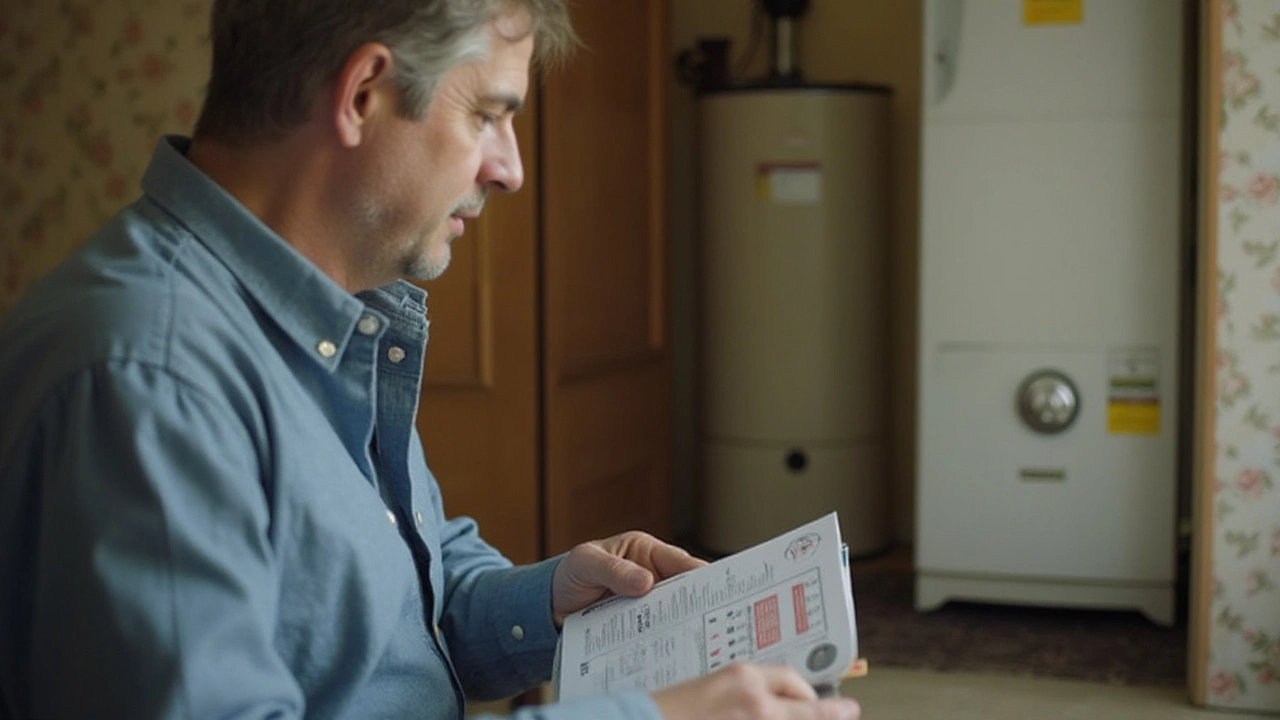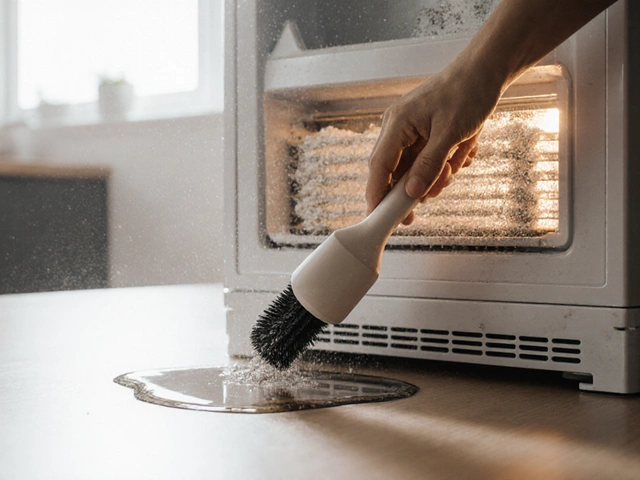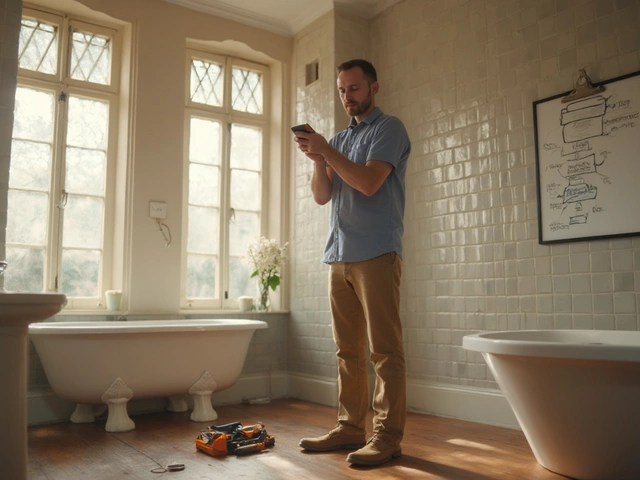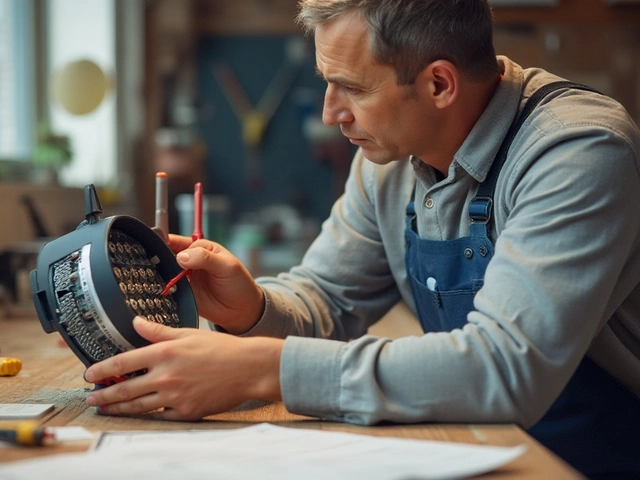Deciding whether to replace your 15-year-old boiler can be a critical decision for many homeowners. Boilers, like all mechanical systems, have a limited lifespan. As they age, they become less efficient, which could lead to higher utility bills and increased maintenance costs.
Age isn't the only factor to consider. The efficiency of modern boilers has significantly improved, providing better heating with less fuel. This not only reduces costs but also has a positive impact on the environment.
Aside from efficiency, think about the reliability of your current system. Older boilers can be more prone to breakdowns, leading to unexpected repair bills. Upgrading doesn't just mean less worry during the cold months but can also mean significant savings over time.
Whether it's for peace of mind, efficiency, or cutting down on repair costs, knowing when to replace your old boiler can be a game-changer. Let's dig deeper into what you need to consider when pondering this important home improvement decision.
- Signs Your Old Boiler Needs Replacing
- Benefits of Upgrading to a New Boiler
- Cost Considerations and Savings
- Environmental and Efficiency Impacts
Signs Your Old Boiler Needs Replacing
Many homeowners find themselves questioning whether their trusty 15-year-old heating system is ready for retirement or can withstand another brutal winter. As boilers age, certain telltale signs emerge, suggesting it's time to consider an upgrade. First, let's talk about efficiency. Older boilers typically struggle to match the efficiency of modern counterparts. If you've noticed your heating bills creeping up unexpectedly year on year, it could mean your current system is working overtime just to maintain warm temperatures, burning more fuel than necessary. This inefficiency is not just a burden on your wallet; it also impacts energy consumption, drawing into question environmental responsibility.
Another major sign is frequent breakdowns. If you watch as your boiler gets repaired multiple times a year, that's a red flag waving for a replacement. Constant repairs not only drain finances but push you closer to a sudden, total failure when you least expect it. It's wise to consider the cost of recurring fixes versus the investment in a new, reliable boiler system. Look at your repair bills; if they're steadily increasing, it might be the perfect moment to ponder a change, ensuring peace of mind during the coldest months.
Noisy operation is yet another indication your boiler needs attention. While some noise is typical for any boiler, banging, clanking, or any unusual sounds suggest issues like sediment build-up or mechanical failures. These sounds are often precursors to more significant problems that can lead to sudden breakdowns, leaving you scrambling for an emergency solution. A quiet, smooth-operating system is what you should aim for, thus adding to your home's comfort while preventing untimely disruptions.
Also, consider the radiators in your home. Cold spots or inconsistent heat distribution are symptoms of an underperforming or clogged system. Take note if rooms are not heating evenly or if certain radiators remain cold despite cranking the system. Older boilers with sludge or air trapped in the system might struggle to supply uniform heat, suggesting that a fresh start with a new, efficient model is needed.
Furthermore, check for leakage around the boiler unit. Any signs of leakage, rust, or corrosion are significant warnings. Water leaks can damage surrounding structures or lead to more costly water damage repairs later. If you notice water pooling or rust forming, it's a clear signal that parts of the boiler are deteriorating and replacement is likely a wise decision to protect your home’s infrastructure.
Finally, consider safety and regulation changes. Every boiler has a lifespan, beyond which safety becomes a concern. Newer models come with advanced safety features and are subject to stringent environmental standards. Installing a modern boiler aligns better with today's safety and efficiency mandates, offering improved safeguarding of your family while promoting cleaner energy consumption. As an expert once said,
"An outdated boiler is a ticking time bomb for energy inefficiency and unexpected costs," suggesting the benefits of timely replacement are manifold.With these points in mind, assess your boiler's condition carefully and decide if it’s time to invest in a better, more efficient system.
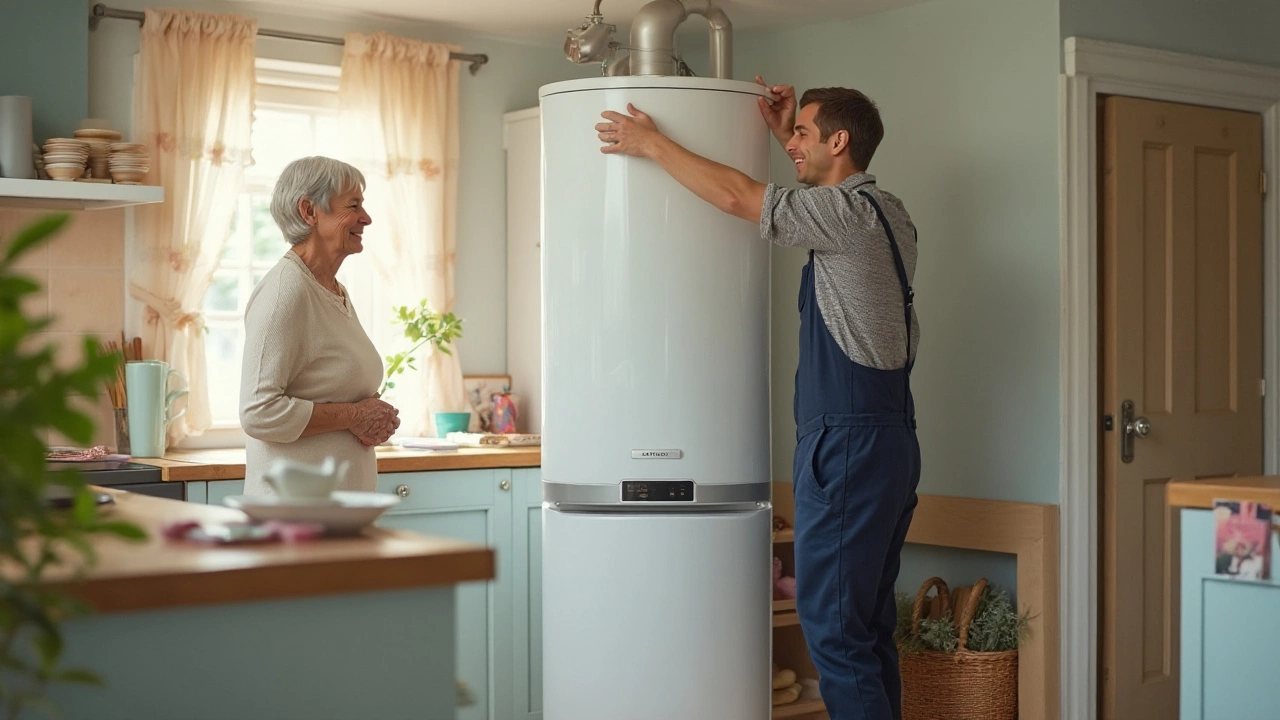
Benefits of Upgrading to a New Boiler
When contemplating an upgrade to a new boiler, homeowners are often drawn to the allure of enhanced energy efficiency. Modern boilers, especially condensing models, boast efficiency ratings exceeding 90%, a stark improvement from their older counterparts that may only achieve around 70%. This leap in efficiency translates directly into reduced energy bills. Imagine the cumulative savings over the years, especially during those long, cold winter months when heating demands are at their peak. Not only does an upgrade bring financial savings, but it also significantly reduces your carbon footprint – an increasingly important factor for environmentally conscious individuals. The technology in today's boilers ensures more heat is extracted from the fuel, making them a sustainable choice for the modern household.
The reliability of new units is another substantial benefit. Boiler technology has advanced remarkably in the past decade, leading to robust systems that are far less likely to break down. The newer models come equipped with smart features, like automatic diagnostics systems, providing you with real-time monitoring and alerts about potential issues before they become costly repairs. This proactive approach saves stress and money in the long run. Moreover, manufacturers have responded to these innovations with extensive warranties, providing peace of mind for years to come. Consider this quote from Mark Bevan from the National Homeowners Association:
The peace of mind that comes with a modern boiler, knowing that it’s less likely to fail and has extensive warranty protection, can’t be overstated.Knowing these systems are built to last gives homeowners confidence in their heating infrastructures, something particularly valuable in regions with harsh climatic conditions.
Another standout advantage of modern boilers is their compact design. They require less space than older models, making them an excellent option for homes where space is at a premium. These new systems can easily be tucked away in a cupboard, freeing up valuable room elsewhere. Plus, their design is not merely aesthetic – they run quieter than ever before. Sleeker profiles combined with reduced operating noise mean they integrate seamlessly into your home’s ecosystem without disrupting daily life. Such seamless integration is reflected in the ease of use; newer boilers often feature user-friendly interfaces and programmable thermostats, allowing you to finely tune temperatures according to your lifestyle.
A significant consideration in today's tech-driven era is connectivity. Many modern boilers offer smart home integration, allowing control via smartphones, tablets, or voice assistants. Imagine adjusting your home’s temperature while still snuggled under the covers or setting the heating to start just before you arrive home from a long day. This kind of control not only contributes to comfort but also ensures home energy efficiency is optimized. A report from 2023 by the Energy Savings Trust highlights that homes with integrated smart heating solutions demonstrated a 10-15% reduction in energy use. Such substantial benefits underscore the value of upgrading, transforming a boiler from just a necessity to a pivotal element in smart home management.
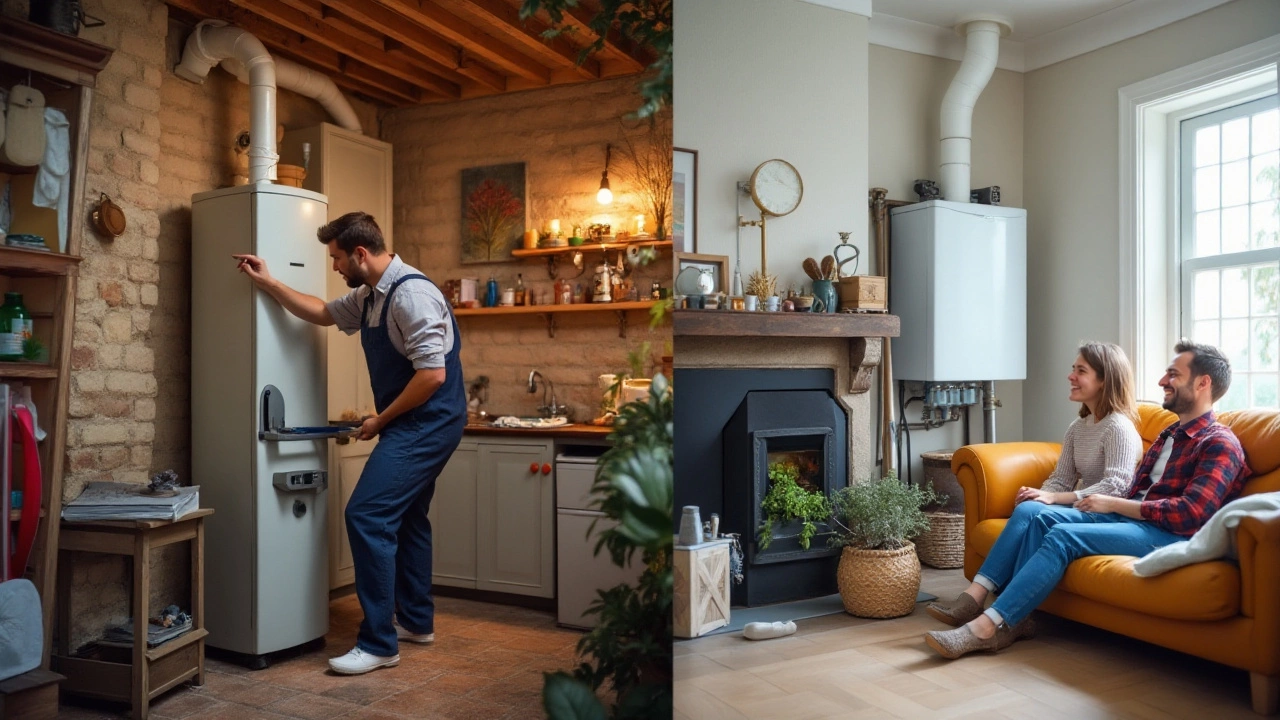
Cost Considerations and Savings
When contemplating the replacement of a 15-year-old boiler, understanding the cost implications and potential savings is crucial. The initial investment in a new boiler might seem steep, often ranging from $3,000 to $7,500 including installation. However, the return on this investment can be significant in multiple ways. A key aspect lies in the improved efficiency of modern boilers compared to their older counterparts. Older boilers typically operate at around 70% efficiency or lower, while new high-efficiency models can achieve up to 98.5%. This leap in efficiency can slash monthly heating bills, resulting in considerable savings over time. The savings can accumulate annually depending on factors such as the size of the home, climate, and boiler usage, potentially covering the initial costs within a few years.
Moreover, there are often additional financial incentives available that can ease the transition to a new system. Many governments and local energy companies offer rebates and tax credits for upgrading to energy-efficient appliances. These programs aim to encourage consumers to move towards greener technology, reducing the environmental impact while also lightening the financial burden of replacing major home systems. For instance, programs such as the U.S. federal tax credits for residential energy efficiency offer up to $600 for qualifying new boiler installations. These incentives can effectively reduce the upfront cost of a modern boiler, making them a more attractive financial choice.
"The efficiency improvement in replacing an outdated boiler with a modern version cannot be overstated," says John Bennett, an HVAC expert from New England. "Not only does it dramatically cut down on energy bills, but it also adds to the overall reliability and longevity of the home heating system."
In addition to direct financial savings, new boilers often come with warranties that can span up to 10 years, providing peace of mind and safeguarding against unexpected repair costs. Older systems, especially ones that are 15 years old or more, are more prone to breakdowns, and repairing such units frequently can become costly. Enhanced warranties ensure that any unlikely malfunctions in the early lifetime of the new boiler are less of a financial burden.
For an insightful breakdown, consider the savings potential against the costs:
| Old Boiler Efficiency | New Boiler Efficiency | Annual Savings |
|---|---|---|
| 70% | 95% | $600 |
| 65% | 90% | $850 |
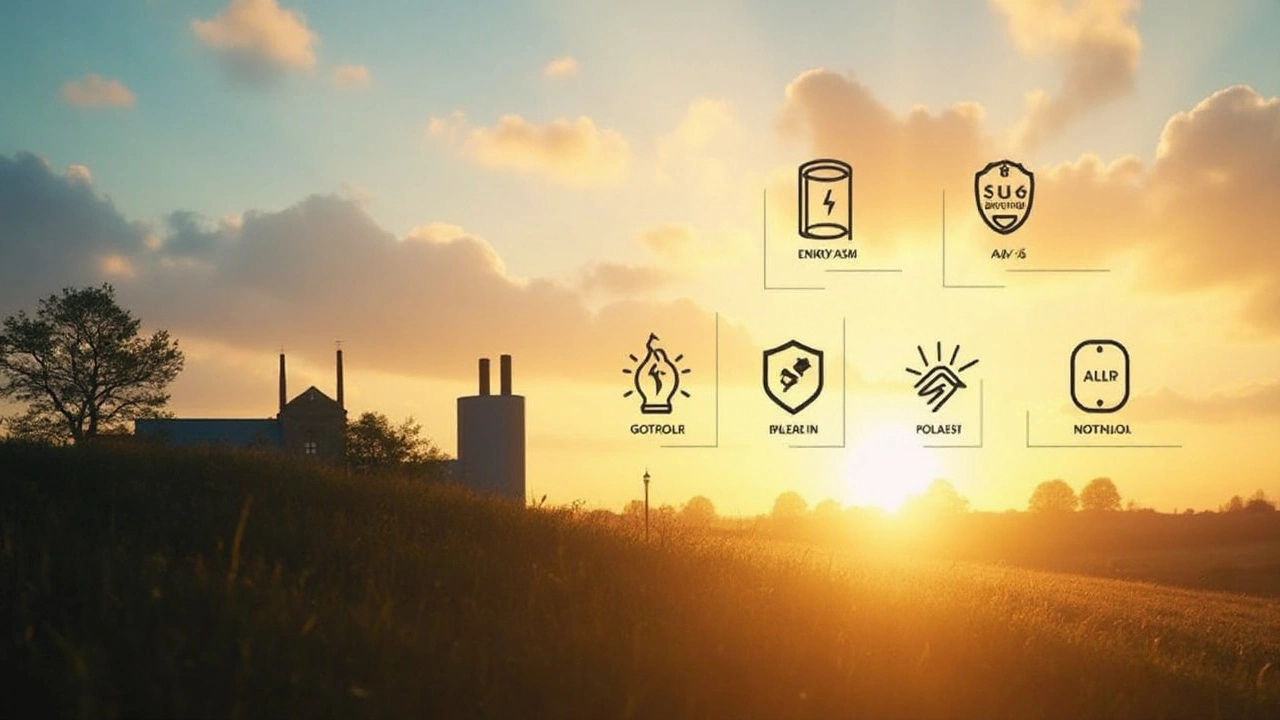
Environmental and Efficiency Impacts
The environmental implications of maintaining an outdated boiler system are substantial, and the benefits of modern boilers significantly outweigh sticking with older technology. When your boiler reaches the 15-year mark, its efficiency often diminishes, resulting in higher energy consumption and increased emissions. In contrast, newer models boast technological advancements that reduce carbon footprints by operating at over 90% efficiency. Old systems typically operate at around 70-80% efficiency, meaning nearly a third of the energy is wasted. This inefficiency not only contributes to higher utility bills but also adds unnecessary stress to the planet.
The environmental advantages of upgrading to a modern boiler go beyond immediate energy conservation. New boilers often use condensing technology, which extracts additional heat from flue gases. This process requires less energy, leading to fewer emissions of greenhouse gases like carbon dioxide. By converting to a modern unit, homeowners not only enhance their home's efficiency but also contribute positively to global efforts to combat climate change. According to the U.S. Department of Energy, replacing your outdated system with a high-efficiency boiler can save you up to 10-20% on annual heating costs, with a corresponding reduction in emissions.
Investing in a new boiler is not just an investment in your home's comfort and value; it's a step toward environmental responsibility. Many governments encourage such updates through rebates and incentives for energy-efficient home improvements, helping to offset initial costs. This not only makes the transition financially feasible but also aligns with broader societal goals. It's becoming essential for homeowners to recognize the significant impact of their choices, especially when heating their homes through increasingly colder months.
Switching to a modern boiler is not merely an upgrade—it's a commitment to sustainability. It's about more than saving money; it's about adapting our lifestyles to preserve the planet for future generations. A spokesperson for the Environmental Protection Agency once emphasized the importance of personal actions, remarking, "Every decision you make at home affects the larger environment. Choosing an efficient boiler leaps beyond comfort—it’s a choice for a better world." This perspective underscores the broad-reaching impacts of seemingly localized actions.

